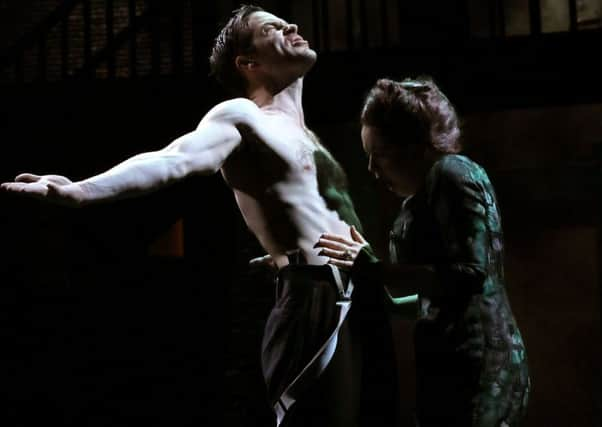Theatre review: The Ruling Class, Pitlochry Festival Theatre


The Ruling Class ****
Pitlochry Festival Theatre
Like most British revolutions, this one failed, of course; rock stars became property owners, the ruling class absorbed them into its ranks, and the progress of social equality in Britain soon began to stall.
Barnes’s play, though, offers a brilliant insight into the naive yet thrilling dynamics of that time and those who want to understand the social revolution of the 1960s should head for Pitlochry to experience John Durnin’s brave and powerful production of this astonishing mid-20th century satirical spectacle, full of what he rightly calls “wild theatricality, heightened language, low comedy and a love of excess and extremity”.
Advertisement
Hide AdIn the first half, Barnes’s play provides a hugely vivid and entertaining account of the shockwaves that run through the aristocratic Gurney family when the title is inherited by the late 14th Earl’s son Jack, a diagnosed schizophrenic who believes that he is God. The trouble with Jack is that he is mad enough, in his family’s view, to take Christian values seriously. God is love, he says; and in this first act Jack Wharrier delivers a terrific performance as this transfigured, almost childlike 15th Earl, spokesman for a new world based on love of all kinds, and not on war.
It can’t last, of course, and in the second half a “recovering” Jack gradually becomes a walking representative of all the repressions, sexual neuroses and hidden cruelties that still often seem to drive our ruling culture.
The end of the play is both deeply satirical and absolutely chilling in its vision of how the violence of stolen power reproduces itself across the centuries.
And although the production has the occasional weaker moment, its combination of harsh satire and high Sixties style is brilliantly captured in Adrian Rees’s design, in a backing track of classic music and in a range of fine performances, with Joanna Lucas – as Jack’s wife Grace – perfectly
capturing that molten Sixties moment when a humble call-girl could mix with lords and become lady of the manor; although at what cost, she might only learn later.
*In repertoire at Pitlochry Festival Theatre until 14 October.